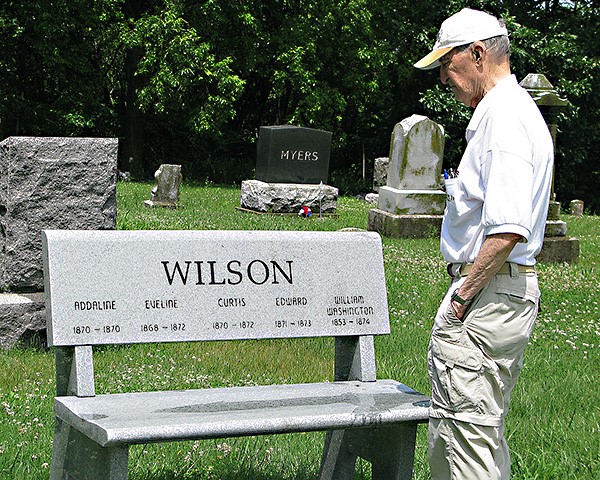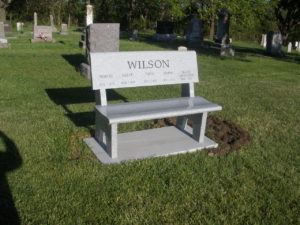The following story is a chapter of an upcoming book written by my mother Priscilla H Wilson about my father Rodney E Wilson. The book is titled Zero Meridian, Five Degrees North.
Zero Meridian, Five Degrees North: Searching for Family
In July 2009, son Ben and Rodney set out on a two-week genealogical expedition across Kansas, Oklahoma and Texas. Rodney expresses excitement as they drive south.
The first stop is Arkansas City. Two cemeteries here hold graves of the Wilson and Baldwin families. They turn west off Highway 27 into Memorial Lawn Cemetery to see the Baldwin side of Rodney’s family. They walk through the four quadrants and locate Benjamin Baldwin’s grave. With plowed fields on the north and wooded land on the south, the cemetery’s grassy vista offers an oasis of comfort and solace.
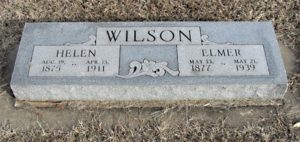
In Guthrie their tour includes Rodney’s boyhood paper route, the newspaper office, his elementary school, and the house where they lived. A stop in the Oklahoma City courthouse discloses Elmer’s marriage license to his second wife, Ethel which fills one more hole in Ben’s hunt for genealogical bits and pieces.
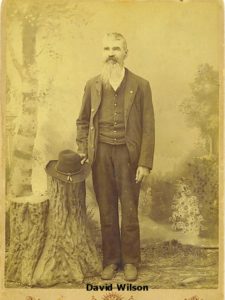
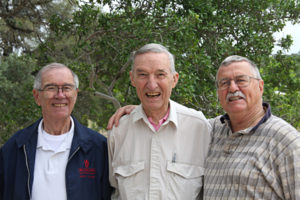
On the drive back to Kansas City, Ben blurts out, “I’ve been doing a lot of research on your great grandfather David Wilson. As long as we have time, let’s go see if we can find his children’s graves in Harveyville.”
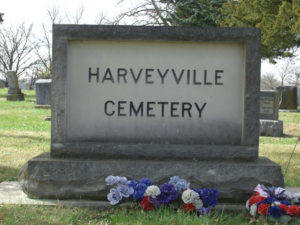
“Nothing.”
In exasperation they leave the cemetery and drive down Main Street. They spot an open store, and Ben goes in and asks, “Do you know who manages the cemetery?” The man points down the street, “ No, go to the feed store and ask for the owner. He’s the new mayor.”
They track down the mayor, “The man who mows and manages the cemetery gave me a box with all the records of the graves on a spread sheet,” he says.
Ben looks through all the records and locates five Wilson names in a row. He checks the names next to these, and they return to the cemetery. A grassy plot, about twenty feet by twenty feet is empty, no stones. Five Wilson children are buried there.
As the guys drive home, their conversation centers on their experience in Harveyville. “I can’t believe there were no markers on those graves. They need to be marked with some kind of stones,” Rodney says.
“We experienced how delightfully peaceful that cemetery is. What if we put a bench where visitors can sit, and enjoy that spot. We could have Wilson printed in larger letters, with the names of each of the five children and their dates under that,” Ben says.
Rodney, always quick to admire the practical way to do things says, “Great idea. You order it and have it put in the middle of the Wilson plot. I’ll pay for it.”
At home Rodney, regales me with stories from their trip. But I understand how gratified he really is when he says, “Having Ben so interested in looking up the stories of the Wilson family really delights me. Knowing more of my family’s history connects me to my past in a new way.”
The next year Rodney and I drive to Harveyville to see the “Wilson” bench.

